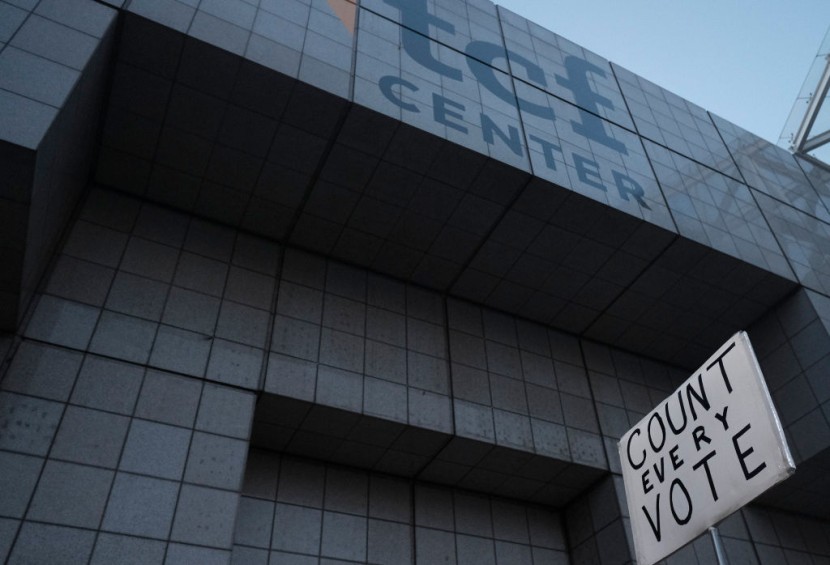Republicans' legislatures are pressing through a slew of new state laws limiting voting access as Democrats in Washington struggle to pass federal election laws. Montana's Republican lawmakers also enacted stricter voting restrictions. If Republicans scramble to adjust the ground rules for upcoming votes, GOP lawmakers in Arizona, Florida, and Texas will quickly follow suit.

Republicans push for a stricter voter access
"This nationwide trend by state lawmakers to limit voting access is moving full steam ahead," said Jonathan Diaz, voting rights legal counsel at the nonpartisan Campaign Legal Center. Florida, a huge political battleground where lawmakers are expected to adjourn by the end of the month, is one of the most widely watched states.
Bills are being considered that will restrict who can return absentee ballots on behalf of voters, require voter ID for absentee voting, and exclude outside organizations from supplying water to voters within 150 feet of a polling place. One Florida amendment would force voters to reapply for absentee ballots for each election rather than remaining on an absentee voting list.
The state Senate will vote on its voting resolutions in the House in the coming week, KTVZ reported. The Republicans' moves around the country come as Democrats in Washington struggle to pass federal election laws that supporters hope could counter the current restrictions.
The pace at which Republican-led states are restricting access to the ballot box has refocused attention on Democratic attempts to pass the "For the People Act," which will change voting, campaign finance, and ethics laws. It will require states to have at least 15 days of early voting in federal elections, provide for compulsory and same-day voter registration, restore voting rights to former felons, and prevent states from banning mail-in and curbside voting, among other measures.
States would also encourage voters to file affidavits in place of photo identification, according to the bill. The bill passed the Democratic-controlled U.S. House of Representatives and was heard by the Senate Rules Committee on May 11.
It has, however, met with fierce resistance from Republicans, who see it as a partisan power grab. It has also failed to support the whole Democratic Party, which holds just 50 seats in the 100-member chamber. The U.S. Chamber of Commerce, one of the country's most powerful business organizations, is also campaigning against the measure, claiming that it restricts business groups' political advocacy.
One of the most significant possible roadblocks is the unwillingness of moderate Democrats, especially West Virginia Senator Joe Manchin, to repeal the Senate filibuster rules, which require 60 votes to pass legislation. Despite this, Manchin has stated his support for expanding voting access.
Faced with the possibility of Senate silence, some members of the Congressional Black Caucus are considering a new approach: introducing a more focused voting rights bill named after the late Rep. John Lewis in the hopes of breaking the deadlock. The bill, which is currently being debated in the House, aims to reinstate core provisions of the Voting Rights Act, which allowed states and localities with a history of racial discrimination to obtain federal permission before changing election laws or policies. The U.S. Supreme Court struck down the provision in a 2013 ruling.
Trump Requests Arizona Governor Ducey to Secure 2020 Election Audit
Support for voting access plunges among Republicans
The overwhelming majority of Americans support a wide range of policies that will significantly increase voter access to the polls next year, as per The Hill. But a recent study showed an increasing political divide as Republican voters express new skepticism about absentee and early voting after former President Donald Trump blamed access to the polling for his electoral defeat last year.
According to the Pew Research Center poll, a large number of Americans support changes that will make voting more accessible: About three-quarters of people want at least two weeks of early voting before Election Day. Seven out of ten people support allowing convicted felons to reclaim their right to vote after serving their sentences. Six out of ten people believe that any qualified person should be automatically registered to vote.
However, there are significant differences of opinion among partisans. More than 80 percent of Democrats and Democrat-leaning voters believe that any voter should vote early or absentee without having a reason. Just 38 percent of Republicans agree, down 19 points after Pew polled the same question in late 2018.
ICE Ends Trump-Era Policy, Says Penalties for Undocumented Immigrants 'Ineffective'








